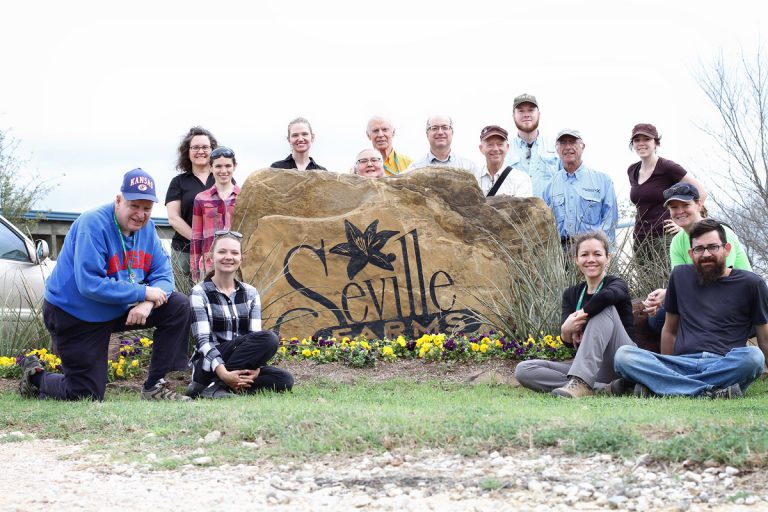
A Trip to Seville Farms
A couple of weeks ago, over half of the BRIT building was eerily empty for a day as the whole research department set off for
Phytophilia = Love of Plants. BRIT’s mission is to conserve our natural heritage by deepening our knowledge of the plant world and achieving public understanding of the value plants bring to life.

A couple of weeks ago, over half of the BRIT building was eerily empty for a day as the whole research department set off for
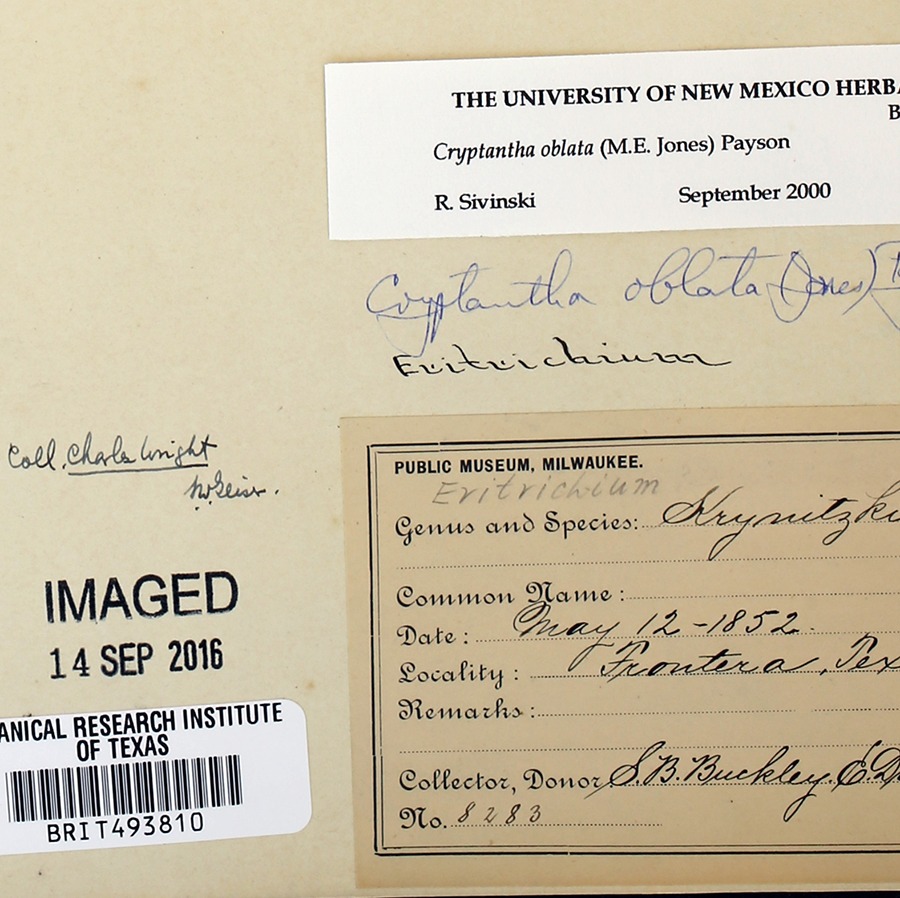
Our “Cabinet Curiosities” series explores significant items in our Herbarium collection. Posts are contributed by staff, volunteers, and interns. In 1852, the former Republic of
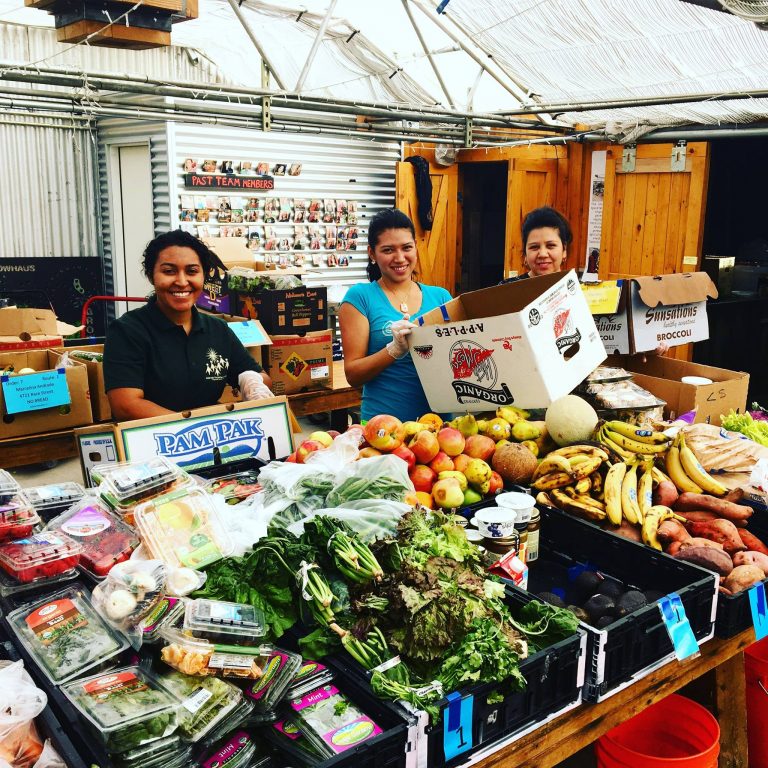
This is the first in a new “Where Are They Now?”series featuring guest posts from former interns, volunteers, staff, and friends of BRIT. This month’s
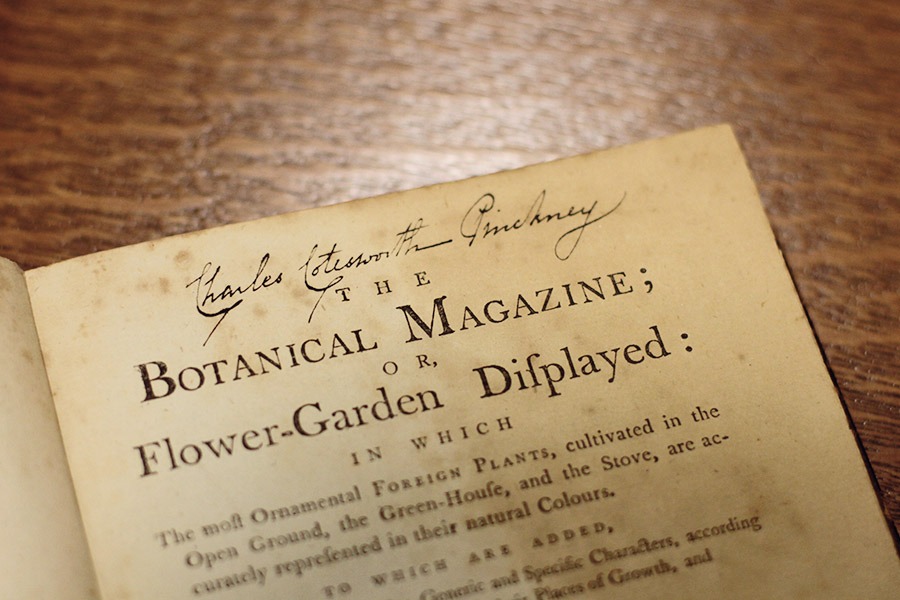
One of the treasures of BRIT’s rare book collection is Curtis’s Botanical Magazine, a premier journal for early botanical illustrations and descriptions. The journal has featured over 10,000 color illustrations in its 230 years of publication. Originally titled The Botanical Magazine, it is the longest running illustrated botanical periodical and is still being published today.
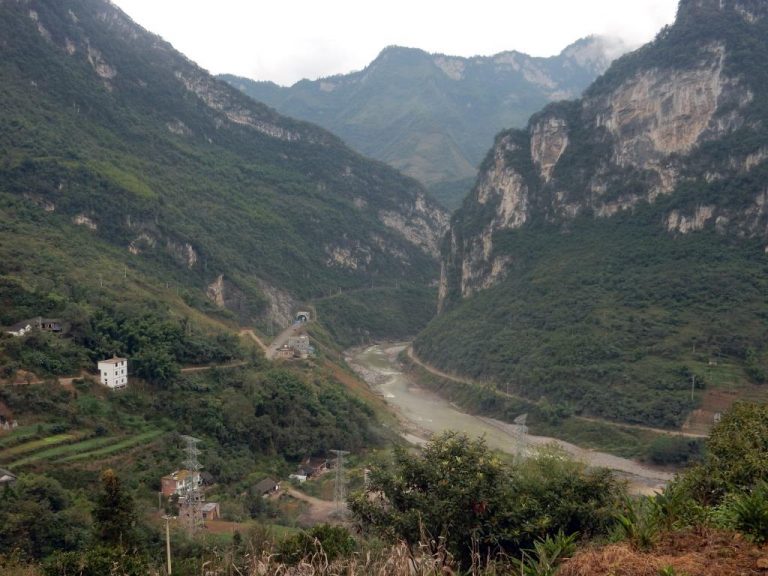
Dr. Peter Fritsch, BRIT’s VP of Research and Director of the Herbarium, is on a visiting scholarship from the Chinese Academy of Sciences, based at
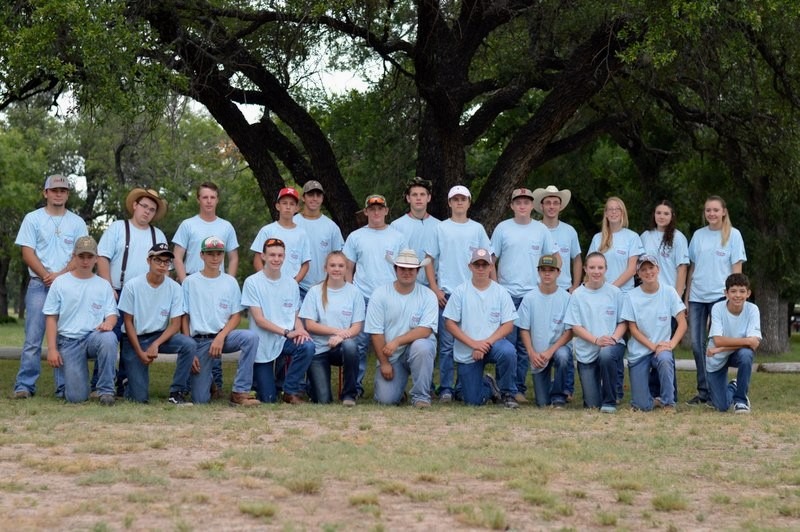
Just imagine trying to keep up with 25 energetic, enthusiastic, inquisitive high school students for a week in the middle of a hot, dry summer
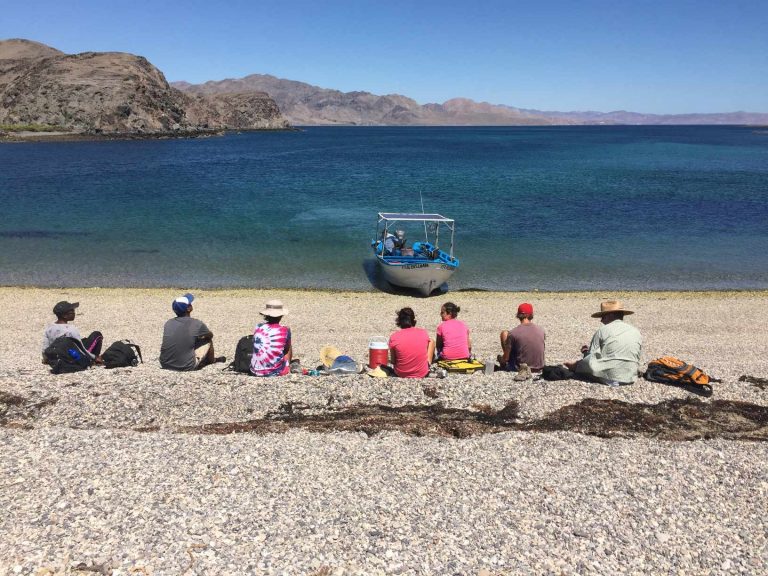
This “Notes from the Field” post was written by BRIT Biodiversity Explorer Dr. Sula Vanderplank. Exploring the plant ecology of the Bahía de Los Angeles
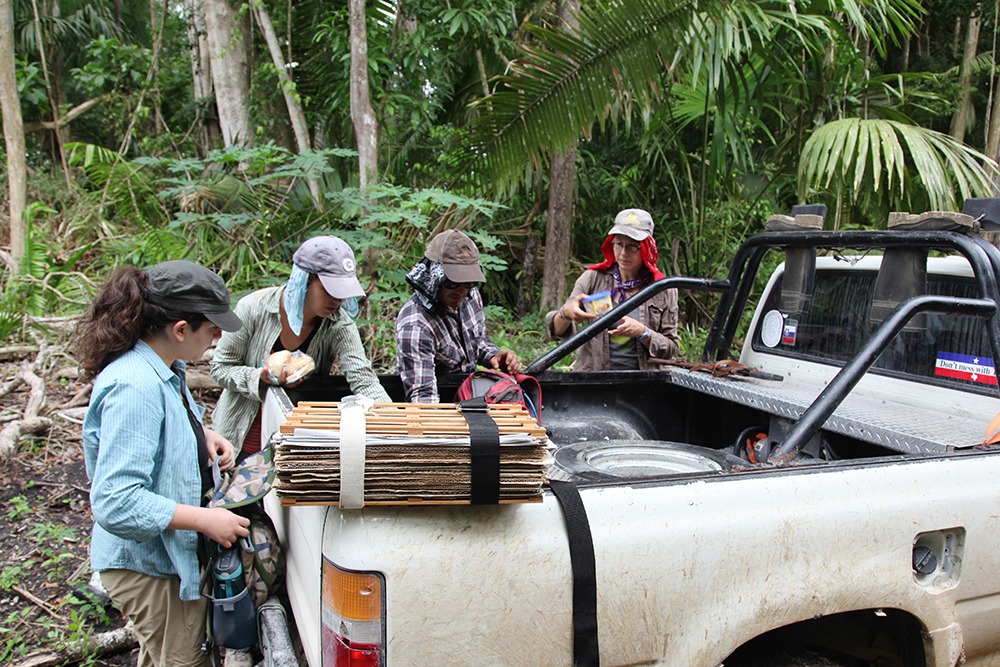
Over the past two summers (2015 & 2016), BRIT Resident Research Associate Dr. Grace Bascopé, a Medical and Environmental Anthropologist, worked with the Maya Research
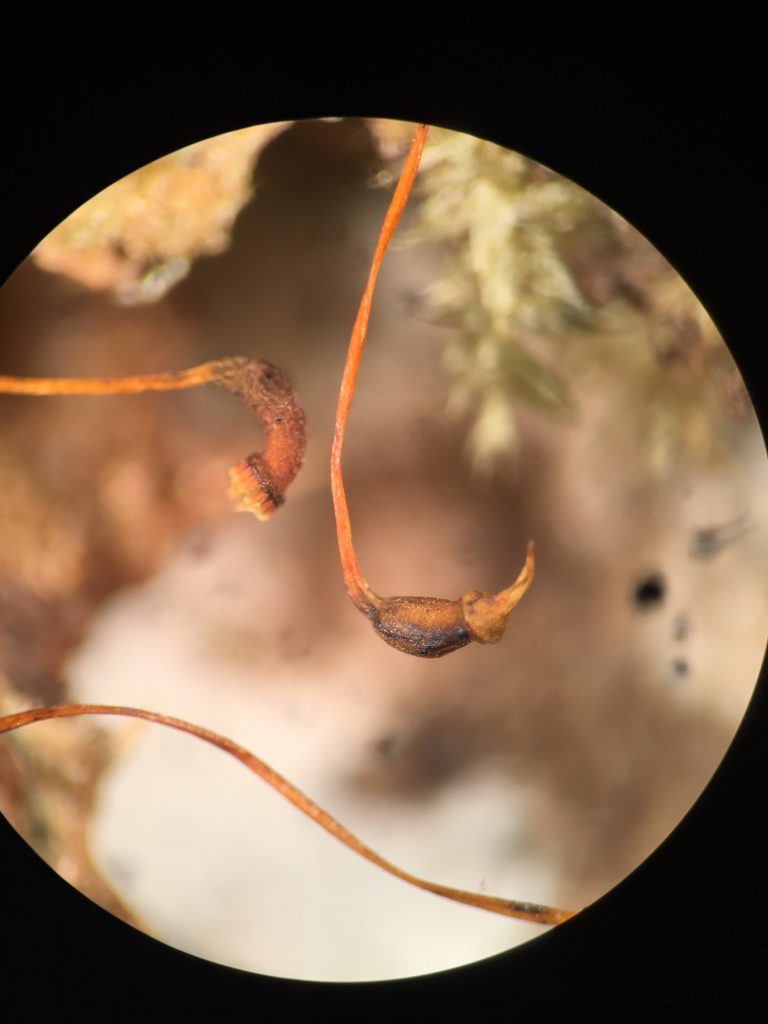
Our interns and volunteers are invaluable at BRIT. In this series, they discuss their experiences with us. This post is by Hanna Liebermann, Hendrix College

I’ll admit it. I’m biased toward brevity. It’s hard to write succinctly, though. Blaise Pascal knew it (“I have made this letter longer than usual,

This article originally appeared in BRIT’s former newsletter publication, Iridos, Issue 20(2) 2009. “Hell — is sitting on a hot stone reading your own scientific publications.”
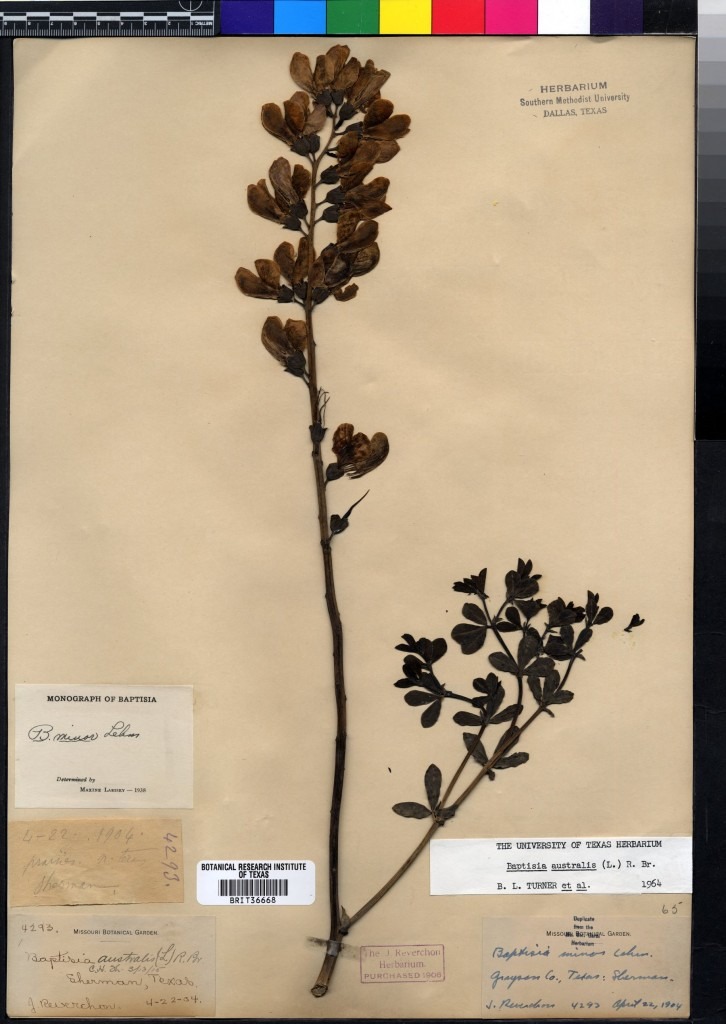
Article originally submitted for The Leaflet (June 2014) by Brian Witte, PhD, BRIT Research Associate Most of us live in the moment. Paycheck-to-paycheck, living for the weekend,
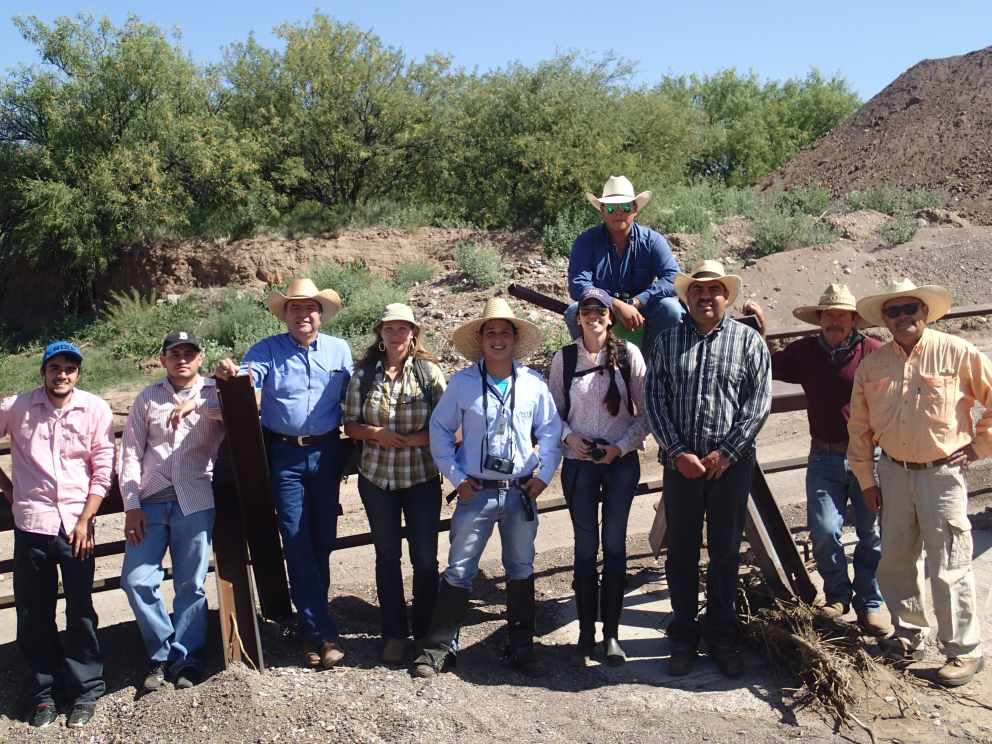
This “Notes from the Field” post is from BRIT Biodiversity Explorer Dr. Sula Vanderplank. Mission: launching Alianca da Terra in Mexico. This blog: a visit
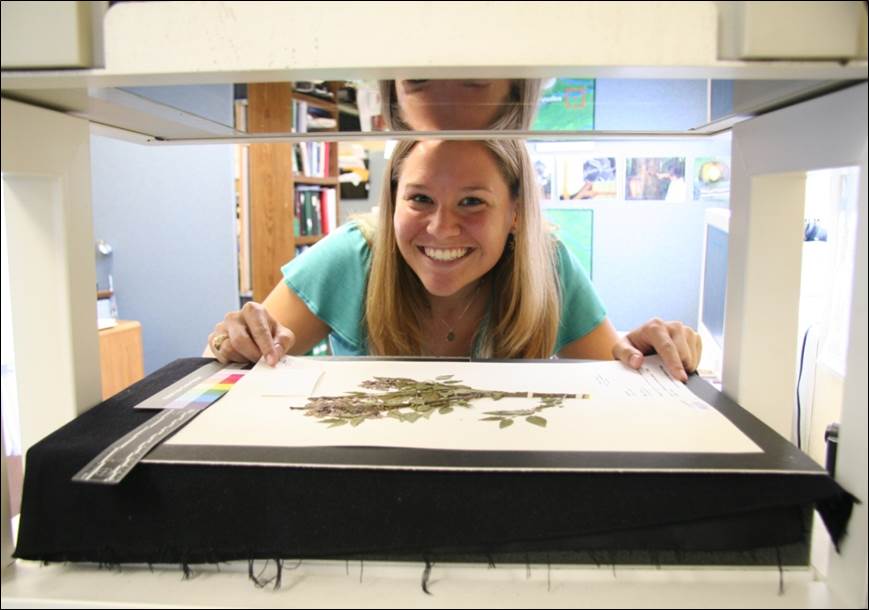
Article originally published in The Leaflet (May 2014) by Brian Witte, PhD, BRIT Research Associate There is a stereotype of the scientist as a lone genius, laboring
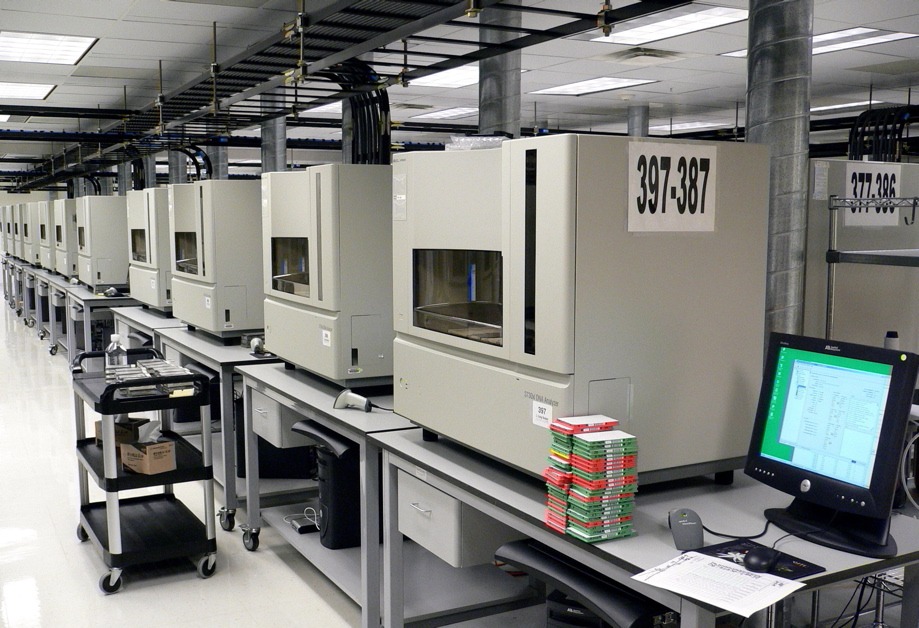
Article originally published in The Leaflet (April 2014) by Brian Witte, PhD, BRIT Research Associate (Disclaimer: The technical aspects of this article are dramatically simplified in the
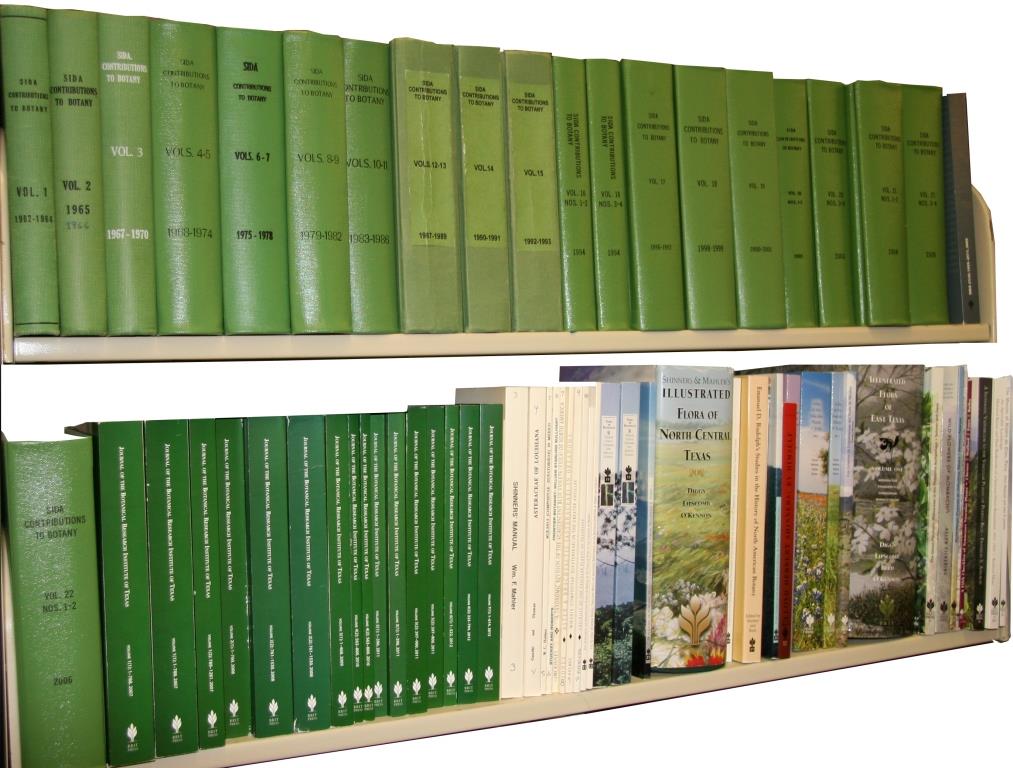
The Journal of the Botanical Research Institute of Texas (JBRIT) is celebrating its 54th year of continuous publication. It all started when Lloyd H. Shinners—a member of the Southern

Herbarium specimens will last hundreds of years if properly cared for. We are committed to providing a secure and easily accessible collection for scientific research.

There is an art to the mounting of plant specimens to their archival quality cardstock backing. BRIT’s volunteers and staff participate in this activity daily.

Plant identification requires you have as much of the plant as possible, and in some occassions this cannot be accomplished if you are dealing with a sterile specimen.

To facilitate specimen storage and use, collected plants must be pressed to a 2-dimensional status and dried to remove any moisture that would encourage fungal growth.
FORT WORTH BOTANIC GARDEN
3220 Botanic Garden Blvd
Fort Worth, Texas 76107
(817) 463-4160
Click here to email us!
BOTANICAL RESEARCH INSTITUTE OF TEXAS
FOLLOW US ON SOCIAL
We respectfully acknowledge that the Fort Worth Botanic Garden is located on traditional lands of Indigenous Peoples. We honor the ancestry, heritage, and gifts of all Indigenous Peoples who were sustained by these lands and give thanks to them. We are grateful that these lands continue to provide enrichment for many people today. [More…]
©2023 Fort Worth Botanic Garden